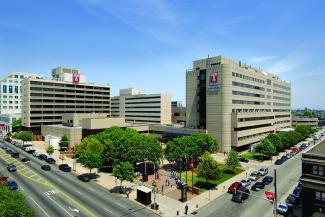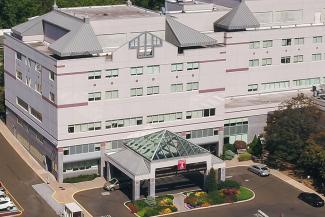Atrial septal defect (ASD) is one of the more common congenital heart defects. A hole in the septum, the wall that separates the upper right and left chambers of the heart (the atria), an atrial septal defect allows oxygenated and deoxygenated blood to mix, so the heart functions less efficiently. If the ASD is large, the heart may overcompensate, leading to other problems such as cardiomyopathy, stroke and high blood pressure, and pulmonary hypertension.
To close an ASD, Temple cardiovascular surgeons either sew it shut or close the defect with a biologic patch. At Temple, ASD repair is often done via a catheter inserted into the heart, rather than open surgery. The same procedure can also be used to repair other heart defects like patent foramen ovale and ventricular septal defects. Frequently, these procedures are performed by minimally invasive approaches.

